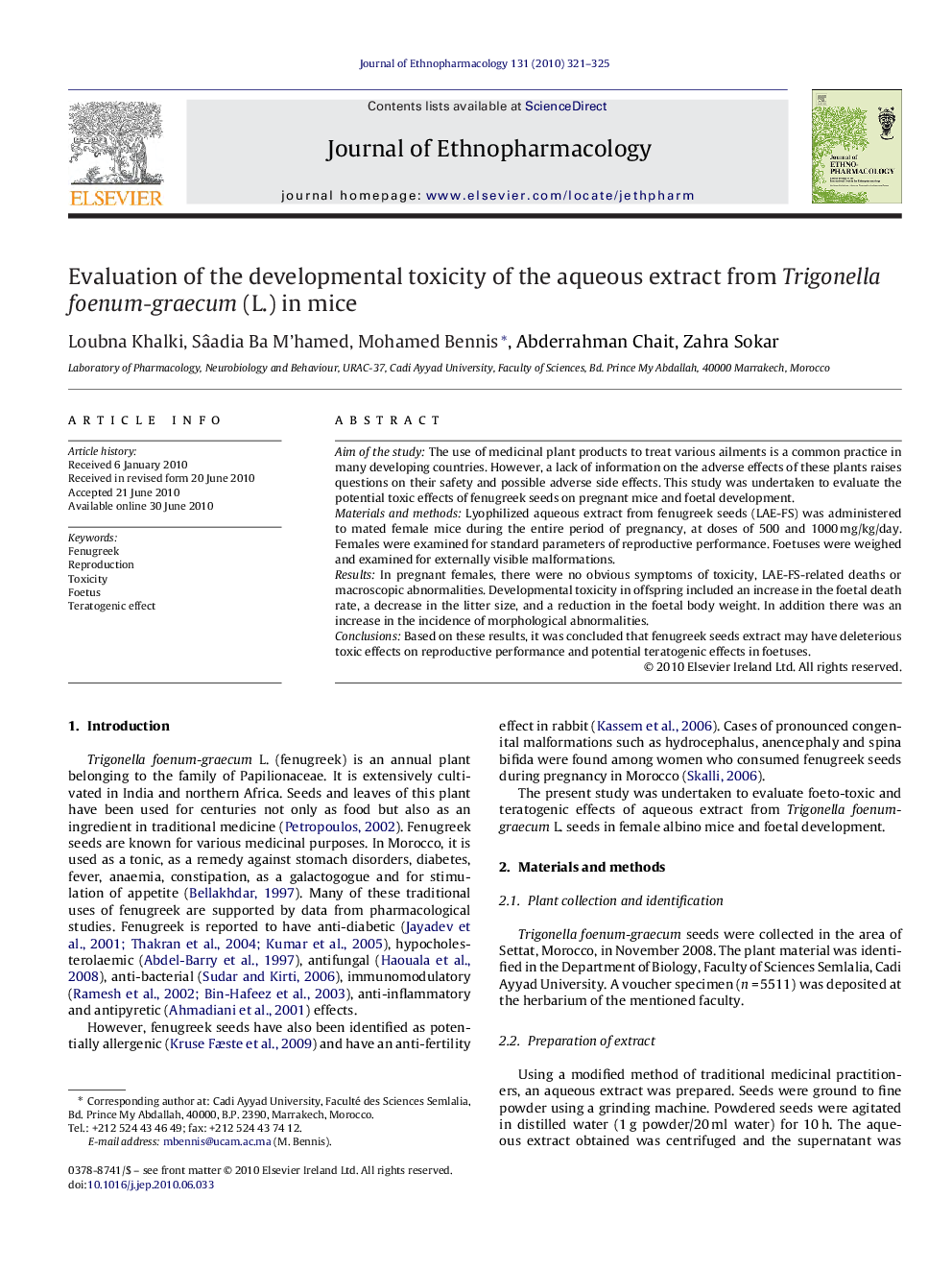| Article ID | Journal | Published Year | Pages | File Type |
|---|---|---|---|---|
| 2545984 | Journal of Ethnopharmacology | 2010 | 5 Pages |
Aim of the studyThe use of medicinal plant products to treat various ailments is a common practice in many developing countries. However, a lack of information on the adverse effects of these plants raises questions on their safety and possible adverse side effects. This study was undertaken to evaluate the potential toxic effects of fenugreek seeds on pregnant mice and foetal development.Materials and methodsLyophilized aqueous extract from fenugreek seeds (LAE-FS) was administered to mated female mice during the entire period of pregnancy, at doses of 500 and 1000 mg/kg/day. Females were examined for standard parameters of reproductive performance. Foetuses were weighed and examined for externally visible malformations.ResultsIn pregnant females, there were no obvious symptoms of toxicity, LAE-FS-related deaths or macroscopic abnormalities. Developmental toxicity in offspring included an increase in the foetal death rate, a decrease in the litter size, and a reduction in the foetal body weight. In addition there was an increase in the incidence of morphological abnormalities.ConclusionsBased on these results, it was concluded that fenugreek seeds extract may have deleterious toxic effects on reproductive performance and potential teratogenic effects in foetuses.
Graphical abstractWe show that fenugreek seeds extract may have deleterious toxic effects on reproductive performance and potential teratogenic effects in foetuses.Figure optionsDownload full-size imageDownload as PowerPoint slide
